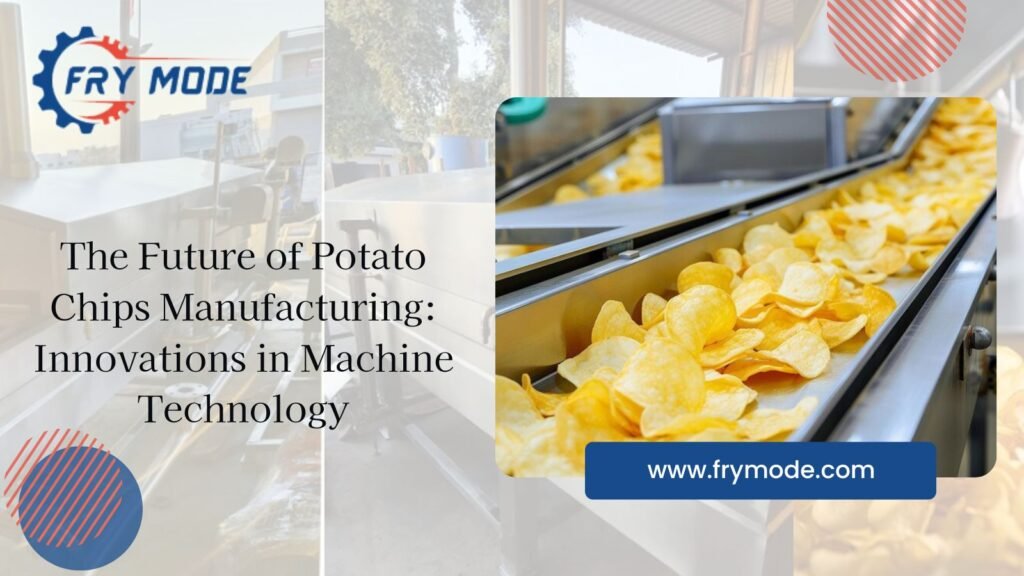The Future of Potato Chips Manufacturing: Innovations in Machine Technology
Expert Tips for Efficient Repairs and Minimizing Downtime

1. The Rise of Automation in Potato Chips Production
Automation is no longer just an option; it’s a necessity for modern food processing. Today’s automatic potato chips machines use digital controls and sophisticated sensors to manage every stage of production with minimal human intervention. This shift toward automation offers several advantages:
- Increased Consistency: Automated systems maintain precise control over temperature, timing, and seasoning application, ensuring every chip meets quality standards.
- Higher Throughput: Machines operating continuously with little downtime enable higher production volumes, meeting large-scale market demands.
- Reduced Labor Costs: With many repetitive tasks automated, companies can optimize staffing and focus on innovation and quality control.
- Real-Time Monitoring: Integrated digital dashboards provide operators with immediate feedback on production metrics, allowing for quick adjustments to maintain peak efficiency.
2. Advanced Processing Equipment
The technological advancements in potato chips processing equipment are central to the industry’s evolution. Innovations in key machinery include:
- Precision Slicing Machines: New-generation slicing equipment ensures uniform thickness for even frying, which is crucial for achieving the perfect crunch and consistency in every batch.
- State-of-the-Art Fryers: Modern frying systems incorporate advanced heating elements and oil filtration systems. They deliver optimal temperatures and energy efficiency while reducing oil consumption—a critical factor in both quality and cost management.
- Integrated Seasoning Systems: Automation in seasoning allows for precise, uniform flavor distribution. This technology enables manufacturers to experiment with innovative flavor profiles without sacrificing consistency.
Smart Packaging Solutions: The future of potato chips manufacturing also extends to packaging. Automated packaging machines that integrate with the production line help preserve freshness and extend shelf life, all while enhancing product appeal.
3. High-Capacity Industrial Production Lines
- For manufacturers aiming to scale operations, high-capacity potato chips machines are essential. Industrial production lines are designed to handle large volumes efficiently and can be scaled to meet growing market demands. Key benefits of these systems include:
- Scalability: Modular designs allow for seamless expansion as production needs grow, ensuring long-term adaptability and cost-effectiveness.
- Enhanced Reliability: High-capacity machines are built for continuous operation, reducing downtime and boosting overall efficiency.
- Energy Efficiency: Innovations such as variable frequency drives (VFDs) and optimized heating elements help lower energy consumption, reducing operational costs and environmental impact.
- Integrated Quality Control: Advanced production lines feature built-in quality monitoring systems that continuously track performance metrics, ensuring every batch of chips meets stringent quality standards.
4. The Role of Data and Connectivity
As the industry moves forward, the integration of data analytics and connectivity is becoming increasingly important. The Internet of Things (IoT) is transforming traditional production lines by linking equipment through connected devices. Benefits include:
- Predictive Maintenance: Data from sensors can predict potential equipment failures before they occur, allowing for proactive maintenance and reducing unexpected downtime.
- Operational Transparency: Real-time data collection enables detailed tracking of every aspect of production, from energy consumption to product quality. This transparency allows manufacturers to optimize processes and quickly adapt to market changes.
- Informed Decision Making: Advanced analytics provide insights into production efficiency, helping manufacturers identify areas for improvement and drive continuous innovation.
5. Environmental Considerations and Sustainability
- Reducing Energy Consumption: Energy-efficient designs and smart control systems lower the overall energy footprint of production lines.
- Minimizing Waste: Improved precision in slicing, frying, and packaging reduces product waste and oil usage, contributing to cost savings and environmental benefits.
- Eco-Friendly Packaging: Advances in packaging technology are leading to more sustainable materials and processes, which are essential for meeting both regulatory requirements and consumer expectations for green products.
6. The Future is Now: Embracing Innovation
Need Energy-Efficient Potato Chips Machine?
Enhance quality and consistency with Frymode’s Automatic Potato Chips Making Machine. Request a demo today!
